Foods to Avoid for GERD (Gastroesophageal Reflux Disease)

GERD (Gastroesophageal Reflux Disease) is a condition in which acid from the stomach escapes into the esophagus leading to pain near the stomach or chest.
Scientific studies still have not found conclusive evidence that GERD can be controlled by dietary changes, but diet and lifestyle changes, like diet and weight loss, are often recommended as a first line of defense. (1)
Finding the right GERD diet for you will involve experimentation, and it is likely to be different from person to person.
Foods that can trigger acid reflux include fatty fried foods, chocolate, coffee, tea, sodas, onions, and more. In addition to avoiding certain foods, other lifestyle factors such as weight loss and eating smaller meals can help alleviate GERD symptoms.
Below are the details of foods that can trigger acid reflux and more information on possible GERD complications.
List of Foods to Avoid for GERD
-
1. Fatty Foods and Meals
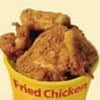 Two groups of study participants were given meals of equal volume, protein, and carbohydrate. The group with a more fatty meal experienced higher stomach acidity and more reflux. (2) Limiting high-fat foods would be advised to reduce reflux symptoms.
Two groups of study participants were given meals of equal volume, protein, and carbohydrate. The group with a more fatty meal experienced higher stomach acidity and more reflux. (2) Limiting high-fat foods would be advised to reduce reflux symptoms. -
2. Chocolate
 Chocolate not only increases acidity in the stomach but can also relax the sphincter (valve) between your stomach and esophagus, leading to stronger acid reflux symptoms. (3) It is sad news for chocolate lovers, but limiting/avoiding chocolate when you have GERD will probably help you feel better.
Chocolate not only increases acidity in the stomach but can also relax the sphincter (valve) between your stomach and esophagus, leading to stronger acid reflux symptoms. (3) It is sad news for chocolate lovers, but limiting/avoiding chocolate when you have GERD will probably help you feel better. - 3. Coffee, Tea, and Caffeine
- 4. Beer, Wine, and Alcohol
-
5. Carbonated Drinks and Sodas
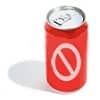 Carbonated beverages are generally acidic and are able to increase the "volume" of fluid in the stomach. It is therefore worth testing how carbonated beverages affect your acid reflux. Studies about carbonated beverages and reflux are not conclusive. (8)
Carbonated beverages are generally acidic and are able to increase the "volume" of fluid in the stomach. It is therefore worth testing how carbonated beverages affect your acid reflux. Studies about carbonated beverages and reflux are not conclusive. (8) -
6. Onions
 In a controlled study, patients who already had acid reflux felt a significant increase in reflux symptoms after eating onions with a hamburger, vs those who simply ate a plain hamburger. Try avoiding onions to see if your reflux symptoms improve. (9)
In a controlled study, patients who already had acid reflux felt a significant increase in reflux symptoms after eating onions with a hamburger, vs those who simply ate a plain hamburger. Try avoiding onions to see if your reflux symptoms improve. (9) -
7. Spicy Foods
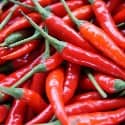 Spicy foods are associated with increased acid reflux and heartburn. The exact mechanism is not known and can vary from person to person. One study reported reflux from spicy foods in men but not in women. (10) Another reported reflux from spicy stews, suggesting a link to hot food eaten in quantity. (11)
Spicy foods are associated with increased acid reflux and heartburn. The exact mechanism is not known and can vary from person to person. One study reported reflux from spicy foods in men but not in women. (10) Another reported reflux from spicy stews, suggesting a link to hot food eaten in quantity. (11) -
8. Salty Foods
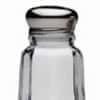 Studies are mixed on the effect of salty foods. (12,13) While foods high in sodium can increase the risk of reflux, it could also be due to unhealthy high-fat foods that usually also contain high sodium levels. Still, experimenting with reducing salt intake is wise when trying to find what foods trigger your acid reflux.
Studies are mixed on the effect of salty foods. (12,13) While foods high in sodium can increase the risk of reflux, it could also be due to unhealthy high-fat foods that usually also contain high sodium levels. Still, experimenting with reducing salt intake is wise when trying to find what foods trigger your acid reflux. -
9. Tomatoes
 Tomatoes actually have a mixed reputation when it comes to acid reflux. Some studies report that tomatoes trigger reflux. (14) However, consuming acidic foods such as tomatoes, can decrease the pH of the stomach. The lower pH has been down to trigger the stomach to stop producing additional acid, which can alleviate symptoms of acid reflux. (15)
Tomatoes actually have a mixed reputation when it comes to acid reflux. Some studies report that tomatoes trigger reflux. (14) However, consuming acidic foods such as tomatoes, can decrease the pH of the stomach. The lower pH has been down to trigger the stomach to stop producing additional acid, which can alleviate symptoms of acid reflux. (15) -
10. Citrus Fruits
 Citrus fruits are similar to tomatoes in that they are reported to both hurt and help with acid reflux. (14,15). In addition, citrus fruits may help reduce the risk of Esophageal Cancer. (16) Test removing citrus fruits from your diet, however, don't discount the potential benefits from such healthy fruits high in fiber and vitamin C.
Citrus fruits are similar to tomatoes in that they are reported to both hurt and help with acid reflux. (14,15). In addition, citrus fruits may help reduce the risk of Esophageal Cancer. (16) Test removing citrus fruits from your diet, however, don't discount the potential benefits from such healthy fruits high in fiber and vitamin C.
Other Factors Affecting Gastrointestinal Reflux Disease (GERD)
- Overweight and Obesity - Being overweight or obese is strongly associated with GERD, possibly due to the increased pressure on the stomach from additional weight. (17,18) Check your BMI to set a health weight target. Also, consume more high fiber low-calorie foods to help with weight loss (and acid-reflux).
- Smoking - Smoking relaxes the reduces lower oesophageal sphincter (LOS) pressure, and is correlated with a higher incidence of acid reflux and GERD. (19,20)
- Avoid Excessive Exercise - High-intensity exercise over a long period of time can cause GERD. Changes in blood flow to the stomach and possibly even hormone secretion are responsible. (21) Avoid eating before exercise. Moderate or exercise in short bursts is fine. (22)
- High Fiber Diet - Foods high in fiber help foods move through your body, reducing the incidence of acid reflux. (23) Avoid high-fiber foods that are high in acid like oranges. (24)
- Practice Good Eating Habits - Eating very hot foods, skipping breakfast, eating too fast, eating a midnight snack, and overeating are all associated with an increased incidence of acid reflux. (25) Instead focus on eating slowly, eating moderate portion sizes, and avoiding eating 3 hours before laying down or bedtime.
What Foods Alleviate Acid Reflux?
Foods that alleviate acid reflux include bananas, beans, chamomile tea, chewing gum, egg whites, ginger, certain herbs, honey, and more. See the full list of foods that help alleviate acid reflux.
Does Mastic Gum Help with Acid Reflux?
Mastic gum is a natural herbal supplement from the mastic tree in Greece. Sometimes consumed and chewed as a gum, added to food, or taken as a supplement Mastic gum holds promise as a natural way to alleviate acid reflux. In this study participants taking mastic gum supplements reported a 79% decline in gastrointestinal discomfort. (26)
Related
Data Sources and References
- Taraszewska A. Body weight, lifestyle, dietary habits and gastroesophageal reflux disease Rocz Panstw Zakl Hig. 2021;72(1):21-28. doi: 10.32394/rpzh.2021.0145. 33882662
- Pehl C, Waizenhoefer A, Wendl B, Schmidt T, Schepp W, Pfeiffer A. A comparison of high and low fat meals on postprandial esophageal acid exposure Am J Gastroenterol. 1999 May;94(5):1192-6. doi: 10.1111/j.1572-0241.1999.01064.x. 10235191
- Kadakia SC, Kikendall JW, Maydonovitch C, Johnson LF. Chocolate and heartburn: evidence of increased esophageal acid exposure after chocolate ingestion Am J Gastroenterol. 1995 Oct;90(10):1785-90. 7572895
- Dubrow R, Darefsky AS, Freedman ND, Hollenbeck AR, Sinha R. Association Between Beverage Intake and Incidence of Gastroesophageal Reflux Symptoms Cancer Causes Control. 2012 May;23(5):757-68. doi: 10.1007/s10552-012-9945-6. Epub 2012 Mar 29. 22457000
- Pope CE 2nd. Gastric acid secretion and lower-esophageal-sphincter pressure in response to coffee and caffeine N Engl J Med. 1975 Oct 30;293(18):931-2. doi: 10.1056/NEJM197510302931815. 1177992
- Pohl H, Wrobel K, Bojarski C, Voderholzer W, Sonnenberg A, Rösch T, Baumgart DC. Hiatal hernia and acid reflux frequency predict presence and length of Barrett's esophagus Am J Gastroenterol. 2013 Feb;108(2):200-7. doi: 10.1038/ajg.2012.387. Epub 2012 Dec 18. 23247577
- Pan J, Cen L, Chen W, Yu C, Li Y, Shen Z. Is alcohol consumption associated with gastroesophageal reflux disease? Alcohol Alcohol. 2019 Jan 1;54(1):62-69. doi: 10.1093/alcalc/agy063. 30184159
- Cuomo R, Savarese MF, Sarnelli G, Vollono G, Rocco A, Coccoli P, Cirillo C, Asciore L, Nardone G, Buyckx M. Systematic review: the effects of carbonated beverages on gastro-oesophageal reflux disease Neurogastroenterol Motil. 2008 Jul;20(7):780-9. doi: 10.1111/j.1365-2982.2008.01116.x. Epub 2008 Mar 26. 18373521
- Block E, Purcell PF, Yolen SR. The effect of raw onions on acid reflux and reflux symptoms Am J Gastroenterol. 1992 May;87(5):679-80. 1595664
- Saneei P, Sadeghi O, Feizi A, Keshteli AH, Daghaghzadeh H, Esmaillzadeh A, Adibi P. Spicy Food Consumption and Risk of Uninvestigated Heartburn in Isfahani Adults J Dig Dis. 2016 Jan;17(1):28-35. doi: 10.1111/1751-2980.12308. 26686235
- Tosetti C, Savarino E, Benedetto E, De Bastiani R; Study Group for the Evaluation of GERD Triggering Foods. Foods Inducing Typical Gastroesophageal Reflux Disease Symptoms in Korea Dig Dis Sci. 2021 May;66(5):1565-1571. doi: 10.1007/s10620-020-06414-z. Epub 2020 Jun 24. 32578044
- Nocon M, Labenz J, Willich SN. Lifestyle related risk factors in the aetiology of gastro-oesophageal reflux Aliment Pharmacol Ther. 2006 Jan 1;23(1):169-74. doi: 10.1111/j.1365-2036.2006.02727.x. 16393294
- Tutuian R, Mainie I, Allan R, Hargreaves K, Agrawal A, Freeman J, Gale J, Castell DO. Effect of dietary sodium chloride on gastro-oesophageal reflux: a randomized controlled trial Aliment Pharmacol Ther. 2006 Jul 1;24(1):155-62. doi: 10.1111/j.1365-2036.2006.02968.x. 16803614
- Yuan L, Tang D, Peng J, Qu N, Yue C, Wang F. Risk factors for gastroesophageal reflux disease symptoms related to lifestyle and diet Zhong Nan Da Xue Xue Bao Yi Xue Ban. 2017 May 28;42(5):558-564. doi: 10.11817/j.issn.1672-7347.2017.05.013. 28626103
- Austin GL, Thiny MT, Westman EC, Yancy WS Jr, Shaheen NJ. New food approaches to reduce and/or eliminate increased gastric acidity related to gastroesophageal pathologies Dig Dis Sci. 2006 Aug;51(8):1307-12. doi: 10.1007/s10620-005-9027-7. Epub 2006 Jul 27. 16871438
- Zhao W, Liu L, Xu S. Citrus Fruit Intake Substantially Reduces the Risk of Esophageal Cancer: A Meta-Analysis of Epidemiologic Studies Medicine (Baltimore). 2018 Mar;97(13):e0018. doi: 10.1097/MD.0000000000010018. 29595629
- Friedenberg FK, Xanthopoulos M, Foster GD, Richter JE. Gastroesophageal reflux disease and obesity Am J Gastroenterol. 2008 Aug;103(8):2111-22. doi: 10.1111/j.1572-0241.2008.01946.x. 18796104
- Kostikas K, Papaioannou AI, Gourgoulianis KI. Body-mass index and symptoms of gastroesophageal reflux in women N Engl J Med. 2006 Aug 24;355(8):848; author reply 849-50. doi: 10.1056/NEJMc061773. 16929003
- Dent J. Smoking and gastro-oesophageal reflux disease Baillieres Clin Gastroenterol. 1987 Oct;1(4):727-45. doi: 10.1016/0950-3528(87)90016-9. 3329541
- Kahrilas PJ. Mechanisms of acid reflux associated with cigarette smoking Dig Dis. 1992;10(2):61-71. doi: 10.1159/000171345. 1591872
- Azzam RS. Gastroesophageal reflux disease and physical activity Arq Gastroenterol. 2018 Nov;55Suppl 1(Suppl 1):85-91. doi: 10.1590/S0004-2803.201800000-48. Epub 2018 Oct 4. 30304291
- Morozov S, Isakov V, Konovalova M. Influence of exercise testing in gastroesophageal reflux in patients with gastroesophageal reflux disease World J Gastroenterol. 2018 Jun 7;24(21):2291-2299. doi: 10.3748/wjg.v24.i21.2291. 29881238
- Semeniuk J, Kaczmarski M, Uścinowicz M. Fiber-enriched diet helps to control symptoms and improves esophageal motility in patients with non-erosive gastroesophageal reflux disease Adv Med Sci. 2008;53(2):283-92. doi: 10.2478/v10039-008-0034-8. 18842562
- Osborne SR, Alston LV, Bolton KA, Whelan J, Reeve E, Wong Shee A, Browne J, Walker T, Versace VL, Allender S, Nichols M, Backholer K, Goodwin N, Lewis S, Dalton H, Prael G, Curtin M, Brooks R, Verdon S, Crockett J, Hodgins G, Walsh S, Lyle DM, Thompson SC, Browne LJ, Knight S, Pit SW, Jones M, Gillam MH, Leach MJ, Gonzalez-Chica DA, Muyambi K, Eshetie T, Tran K, May E, Lieschke G, Parker V, Smith A, Hayes C, Dunlop AJ, Rajappa H, White R, Oakley P, Holliday S. Dietary Intake in Relation to the Risk of Reflux Disease: A Systematic Review Med J Aust. 2020 Dec;213 Suppl 11:S3-S32.e1. doi: 10.5694/mja2.50881. 33314144
- Yuan LZ, Yi P, Wang GS, Tan SY, Huang GM, Qi LZ, Jia Y, Wang F. Dietary and Lifestyle Factors Related to Gastroesophageal Reflux Disease: A Systematic Review Therap Adv Gastroenterol. 2019 Sep 25;12:1756284819877788. doi: 10.1177/1756284819877788. eCollection 2019. 31598134
- Pachi VK, Mikropoulou EV, Gkiouvetidis P, Siafakas K, Argyropoulou A, Angelis A, Mitakou S, Halabalaki M. Is Chios mastic gum effective in the treatment of functional dyspepsia? A prospective randomised double-blind placebo controlled trial J Ethnopharmacol. 2020 May 23;254:112485. doi: 10.1016/j.jep.2019.112485. Epub 2020 Feb 22. 32092498
Simplify Nutrition Tracking with MyFoodData!
Speedy Tools and Detailed Data FREEEasily analyze your meals to find the best foods for your goals.
✅ Use our recipe nutrition calculator and nutrition comparison tool.
✅ Access expert nutrition data tools and in-depth articles.
✅ Log foods and organize your recipes with a free account.




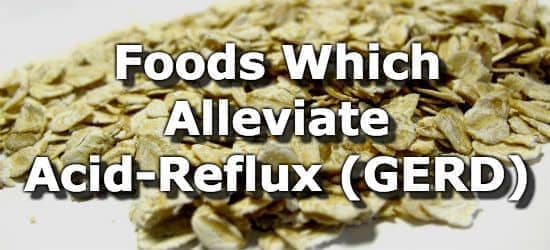 Next ➞
Next ➞
